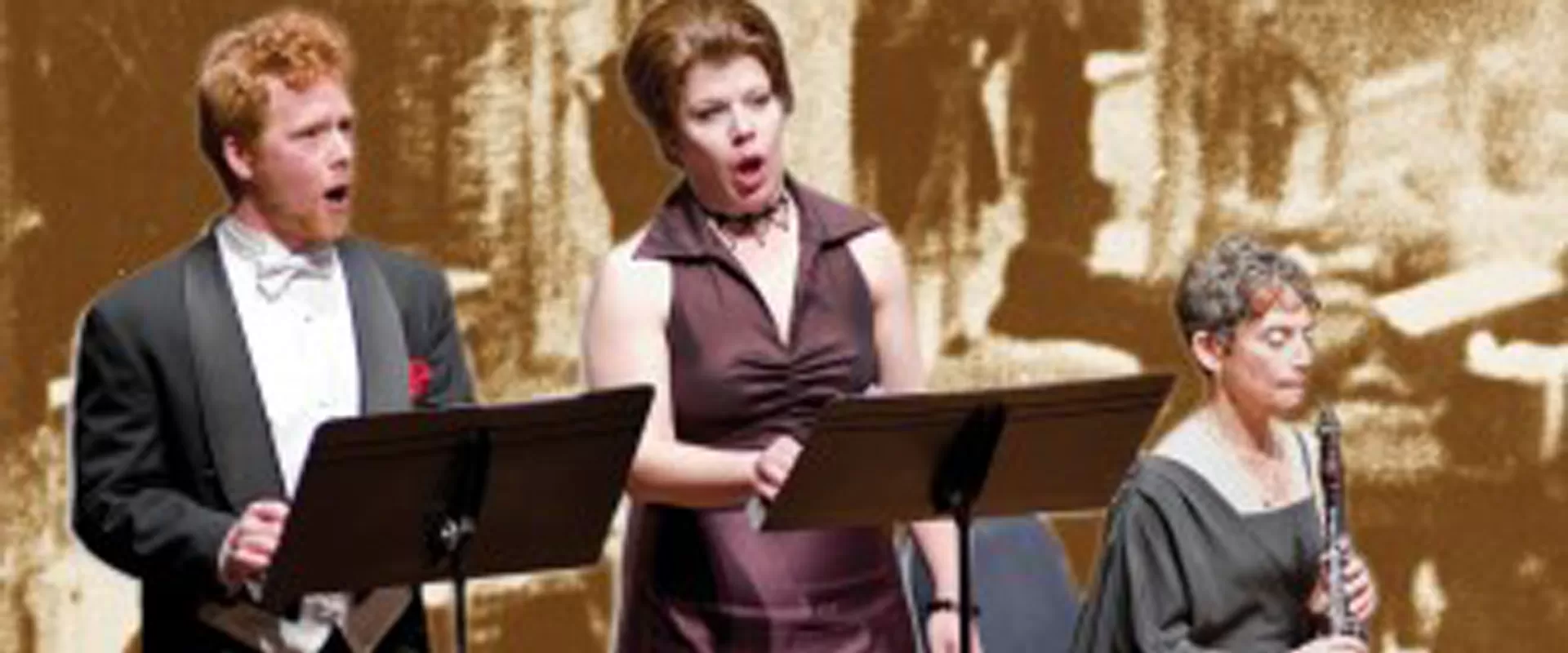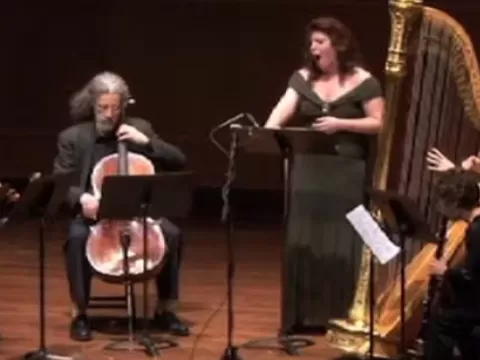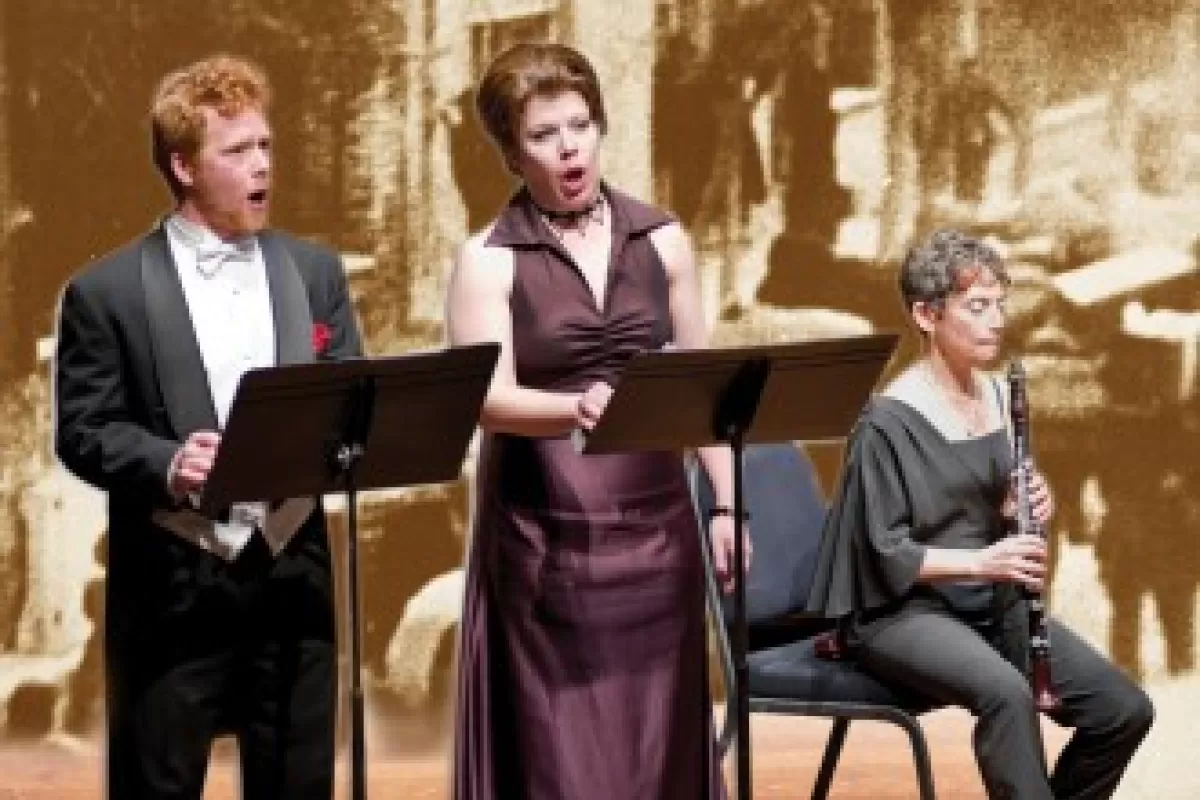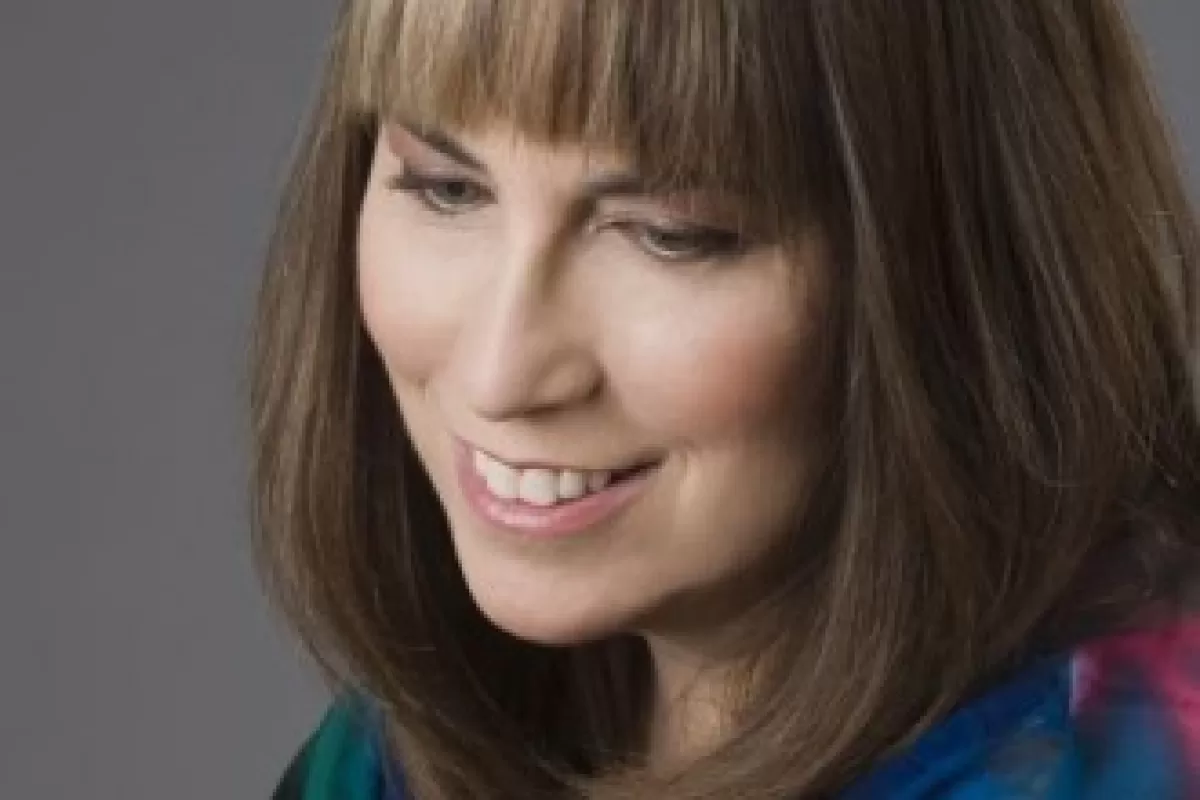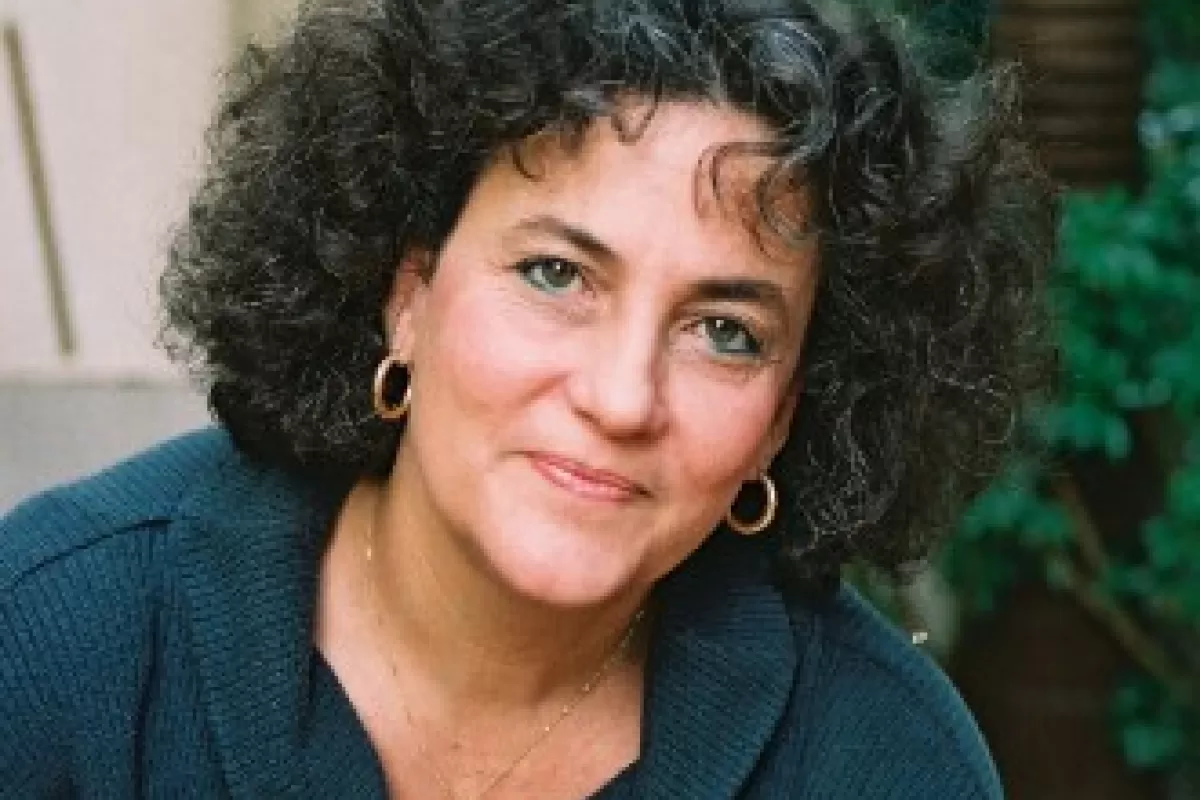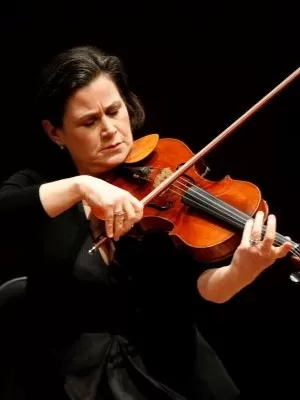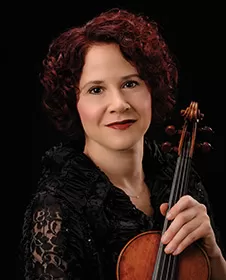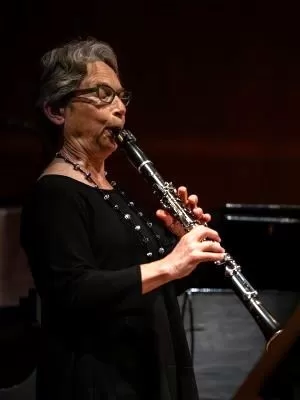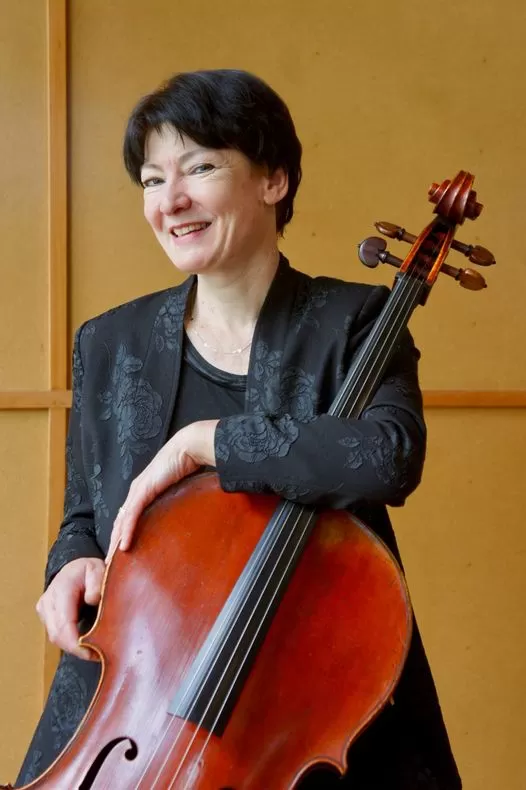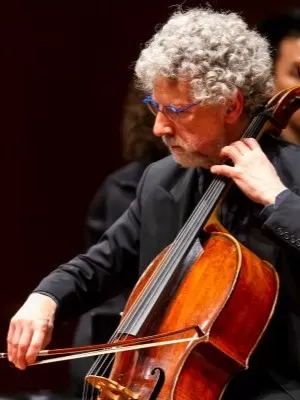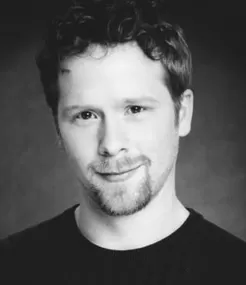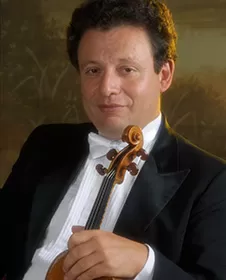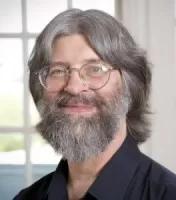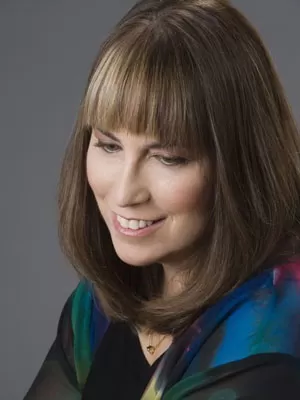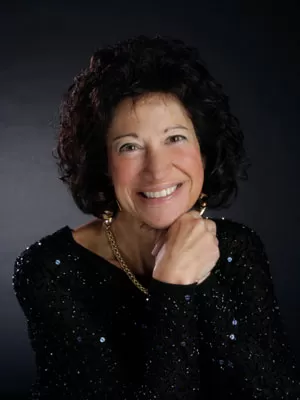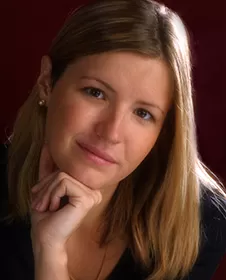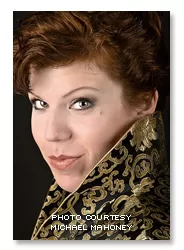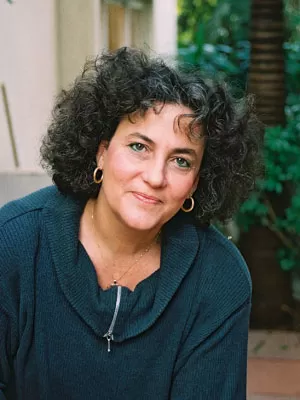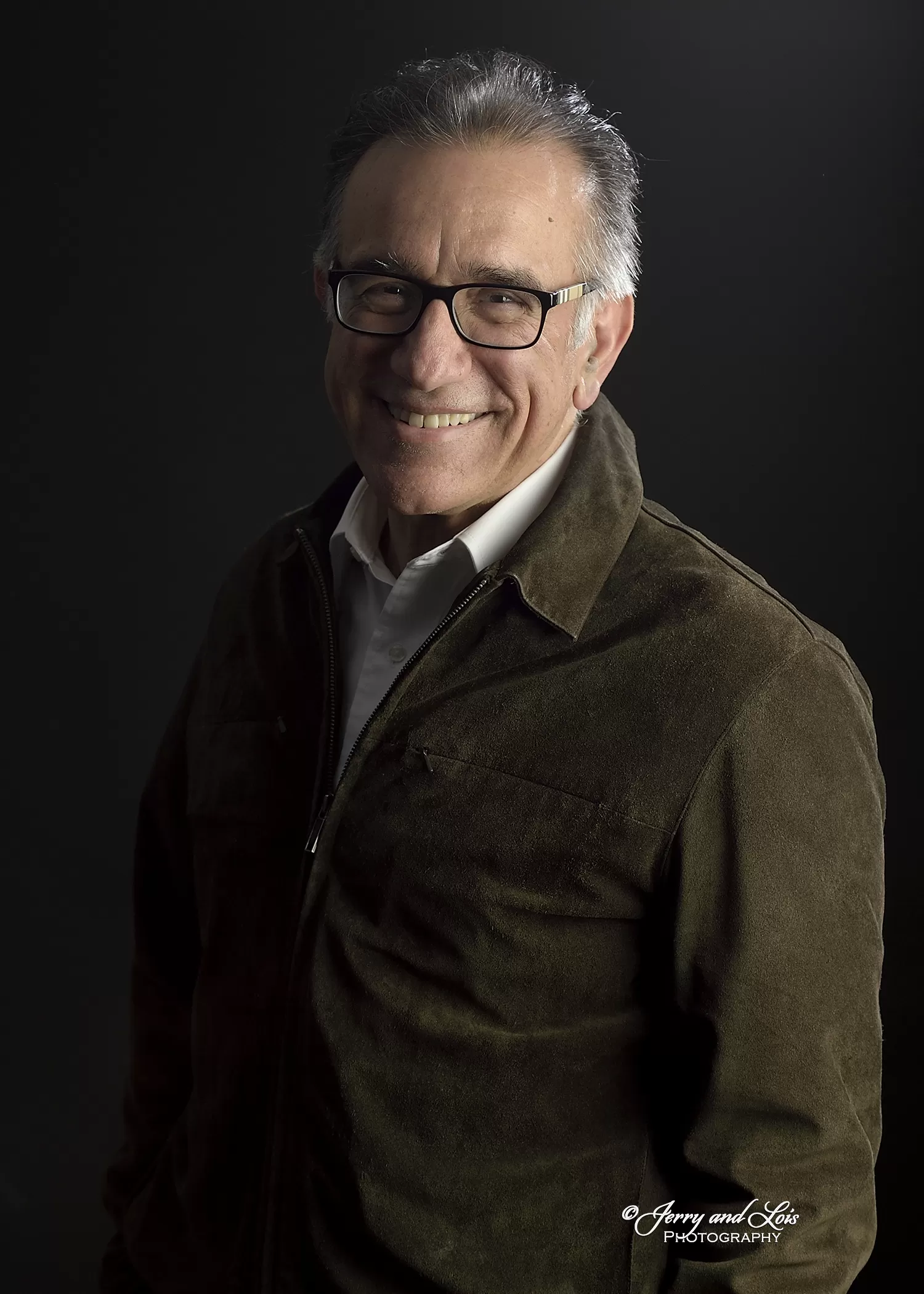May 10, 2011 - 12:00 pm
Portland Opera mezzo soprano Angela Niederloh returned to MOR to sing Kolo’t (“Voices”), in the world premiere of MOR’s commission. Israeli composer Betty Olivero’s work weaves excerpts of Ladino ballads and poems around a deeply poignant letter from a Sephardic Auschwitz survivor. Niederloh and tenor Ross Hauck also unveiled a special song-cycle version of Lori Laitman’s compellingVedem, another MOR commission. Here, six poems—from VEDEM, the clandestine magazine produced every week for two years by a group of teenage boy prisoners at Terezín—stand alone: “touching, beautiful, funny, and horrific" (City Arts). The Pavel Haas string quartet is “a work of intense drama and visionary effects,” says BBC Music Magazine. Also, Olivero’s dazzling klezmer suite from her music to the classic 1920 silent film The Golem.
About the Music
VEDEM (2010)
Lori Laitman (b. Long Beach, NY, 1955)
WORLD PREMIERE of song cycle version
Commissioned by Music of Remembrance
Made possible by a generous gift from the William O. and K. Carole Ellison Foundation
The fate of children in the Holocaust represents a uniquely haunting tragedy. It has been estimated that over one million children were murdered under Nazi rule. Children had even smaller chances of surviving than adults. In the ghettos they were especially vulnerable to disease and starvation. Not considered useful for forced labor, children were commonly selected for execution as soon as they arrived at the camps. In Terezín alone, some 15,000 children under the age of fifteen passed through the concentration camp between 1942 and 1944. Only a few hundred were alive by war’s end.
Terezín’s Jewish council of elders sought to ease the ordeal facing the camp’s children by placing them in buildings where conditions were better than in the barracks housing most adults. By February 1942, the first children’s homes were established. Building L410 became a home for girls, Building L 417 a boy’s dormitory. Each room in these buildings was assigned an adult leader.
Valtr Eisinger, an imaginative and farsighted educator, was the leader of the 14-year-old boys in Building L417’s room designated as Home One. He helped the boys to imagine their room as an idealistic society called The Republic of Shkid, a cryptic reference to a Russian book that used this acronym for a school for homeless orphans. The boys in Home One were united in mutual support, and they sang an anthem that pledged faith in the ideals of peace, equality, and brotherhood.
The boys also created poetry, essays and illustrations for a clandestine magazine that they called VEDEM (Czech for “In the Lead”). Every Friday night for two years between 1942 and 1944, they read aloud their week’s contributions to the journal. Their writings reveal inspirational courage, passionate idealism, and wisdom far beyond the years of their young authors. They also display amazing literary talent. At age fourteen, Petr Ginz became VEDEM’s first and only editor-in-chief. At age sixteen, he was sent to his death in Auschwitz.
Miraculously, all 800-or-so pages of the journal have been preserved. Sidney Taussig, the only boy from Home One to remain in Terezín until the end of the war, had the foresight to bury the manuscript. He and his father returned with it to Prague after liberation. These pages give us a precious glimpse of the world of boys torn from their childhoods and separated from their families. The words tell of the boys’ experience in the camp, and of the dreams for a better world that only a few of them would live to see.
In 1995, selections from VEDEM were compiled in the book We Are Children Just the Same. For many years it was my vision that Music of Remembrance would commission a work to share this remarkable legacy through music. Our challenge was to find a composer who could communicate these boys’ words, their hopes and dreams, in the voice of the teenagers. Since 2000, we have performed Lori Laitman’s moving Holocaust-inspired vocal works. Lori has an exceptional gift for setting words to music, and for capturing the depth of human experience with emotional and artistic honesty. (Poet David Mason was her librettist for the oratorio version Vedem, which we premiered last spring with Joseph Crnko and the Northwest Boychoir.)
About one hundred boys passed through Terezin’s Home One; fifteen of them are known to have survived the Holocaust. Six are alive today—we are deeply honored that Sidney Taussig has joined us once more for the premiere of this song cycle version of Vedem.
Lori Laitman offers the following remarks:
This song cycle version of Vedem incorporates six of the magazine’s original poems by the teenage boys Petr Ginz, Hanus Hachenburg, Zdenek Ornest, and Josef Taussig. Scoring them for the adult soloists allowed me to create intricate musical lines, and the use of clarinet and piano as accompaniment allowed for a variety of dramatic interactions.
“Memories of Prague” by Petr Ginz (the editor of VEDEM), alternates beautiful memories of Prague with a new harsh reality, and these visions are portrayed by stark musical contrasts: lyricism vs. a dirge. “Five,” by Hanus Hachenburg, chillingly compares “five novels, sewn up in a sack” to new life in the camp. A five-note scale motif and five-measure phrases run throughout this quick song. “Just A Little Warmth,” by Zdenek Ornest, speaks of the terrible coldness and filth in the camp. Voice and clarinet create a stark opening texture. All instruments blend together as the fantasy of warmth develops. As the narrator abandons all hope, starker textures return.
In Hanus Hachenburg’s “Thoughts,” the music alternates between a macabre march and an unexpectedly calm and lyrical lullaby, depicting the child’s delusional state. Tenor and mezzo join together and build towards a dramatic climax, as the young boy cries out for his mother to hold him. I chose “Love In The Floodgates,” by Josef Taussig, as “comic relief,” and had composed the song’s outline when I received a phone call from Emil Kopel, one of the VEDEM survivors. He told me a secret: he had survived a death march to Buchenwald by replaying the tune to Dvorak’s Humoresque in his head. To my surprise, I found that the theme almost exactly fit over my existing draft. I bring the cycle to a close with “Farewell to Summer,” by Zdenek Ornest, and the song makes use of several prior themes.
Lori Laitman, composer, is one of America’s most acclaimed composers of vocal music. The composer of two operas (the Holocaust-themed chamber opera Come To Me in Dreams from 2004, and 2008’s The Scarlet Letter, to David Mason’s adaptation of the Hawthorne classic) and the Vedem oratorio, she has also composed over 200 songs, setting the words of classical and contemporary poets. After the world premiere of Vedem in Seattle (2010), her second MOR commission, Laitman spoke about the work at Yale’s Institute for Sacred Music. Her previous MOR premieres include Holocaust 1944 (2000), Fathers (2003) and her first MOR commission, The Seed of Dream (2005). She and Mason are collaborating on the opera Ludlow, based on Mason’s epic verse novel. Her music has been released on Albany, Naxos, Channel Classics and other labels. Laitman received her B.A. and M.M. from Yale University.
String Quartet No. 2 (1925)
Pavel Haas (b. Brno, 1899 – d. Auschwitz, 1944)
Pavel Haas was likely the most gifted student of Czech composer Leoš Janácěk. The son of a shoemaker, Haas did not begin his musical studies until his early teens, attending the music school of his hometown’s Philharmonic Society. After three years of army service, he joined the Conservatory and graduated to Janácěk’s master class, becoming a star pupil. Over two productive decades, Haas would work on over fifty compositions, but he gave opus numbers to only eighteen. His varied oeuvre includes symphonic and choral works, lieder, chamber music, scores for cinema and theatre, and an opera. Haas’ mature compositional voice combined a Stravinsky-like neo-Classicism with jazz, Czech folk themes, and Jewish synagogue music.
Haas was 26 when he composed his second string quartet in 1925, three years after his studies with Janácěk. In four movements, Haas evokes scenes from a summer vacation in the “Monkey Mountains,” the local nickname for the popular tourist area of the Moravian Highlands. The first two movements, “Landscape” and “Coach, Coachman, and Horse,” are marked a leisurely andante that conjure a sunny afternoon with birds chirping in the trees and a man passing by on a squeaky-wheeled cart. “The Moon and I…” is a slow and mysterious nocturnal meditation. The fiery finale, “Wild Night,” fuses folk melodies with jazz syncopation.
In tonight’s performance, we perform the final movement with percussion instruments that Haas added for the quartet’s premiere. Haas hoped to emphasize the movement’s dance-like character, but this experiment received a harsh reception from critics who thought it inappropriate for chamber music. As a result, Haas dropped the percussion in subsequent performances. The percussion part, while not part of the published score, has been preserved. We include it tonight to honor Haas’ original intention and to highlight his important role as a musical innovator.
Haas saw Prague occupied by Nazi Germany in 1939, and was deported in 1941 to Terezín, where he joined fellow Czech Jewish composers Viktor Ullmann, Gideon Klein, and Hans Krása. It was Klein who gave Haas music paper and encouraged him to compose to resist the depression that threatened to overwhelm him. Haas went on to write eight pieces while at Terezín. Knowing his likely fate, Haas had saved his non-Jewish wife and their daughter by divorcing. He was sent to his death at Auschwitz in October 1944.
Kolo’t (2010)
Betty Olivero (b. Tel Aviv, 1954)
World Premiere, Commissioned by Music of Remembrance
The Jewish community of Thessalonika dates at least as far back as the First Century. The community grew dramatically with the influx of Sephardic Jews expelled from Spain in 1492, and it soon became a major force in the city’s commercial and intellectual life, eventually constituting Thessalonika’s single largest population group. The community’s vibrancy was admired throughout Europe and the world, earning it the nickname “Mother of Israel.” Thessalonika was occupied by Axis forces in April 1941, and Nazi persecution began immediately. After two years of humiliation and forced labor, the first of nineteen transports left for the extermination camps in March 1943. Few of Thessalonika’s 54,000 Jews survived.
In Kolo’t, Betty Olivero has accomplished something remarkable. She communicates the vast scope of this tragic history by engaging us in richly emotional human experience.
Betty Olivero offers the following remarks:
To compose a narrative piece of music to commemorate the Sho’ah is a difficult task; I accepted this invitation with dread and trepidation. The events are so horrible that it is at times hard to believe they are true; the subject itself awakens a myriad of emotions so that it is easy to fall into rhetorical statements, enabling the listener to avoid real solidarity and empathy with the victims. This approach profanes their memory. The magnitude of these events is such that only the words of direct witnesses can prevent repudiation of the catastrophe. Documents and concrete evidence, through their silences, tell the story faithfully. Outside commentary or artistic manipulation runs the risk that the most important sound will not be heard at all: the howl of silence.
As a granddaughter of Sephardic Jews from Thessalonika who were exterminated in Auschwitz, I decided to quote from a poem written as a letter in Ladino (a Spanish-Jewish dialect), by an anonymous Sephardic Jew from Thessalonika, a survivor of Auschwitz. The poem is a hopeful prayer for salvation. In my piece, it joins Ladino melodies and poetry, drawn from the rich heritage of music and poetry produced during the great millennium of Jewish residence in Spain, which came to an abrupt end with the Expulsion of 1492. This poem, a straightforward document, inserted amongst excerpts of love songs and yearning poems for the lost, forgotten land—all carried down through the ages since the tragic expulsion—represents the pure strength of the soul, the victory of thought and spirit over the forces of evil that operated during what was one of the darkest periods in the history of humanity.
Zeks Yiddishe Lider un Tantz from The Golem (1997)
Betty Olivero (b. Tel Aviv, 1954)
Historically the Golem legend has served as a complex metaphor for the struggle to survive during times of persecution. Probably the most famous Golem narrative, involves Rabbi Judah Loew of 16th-century Prague, who was said to have created a Golem to protect Prague’s Jews from the emperor’s threats of expulsion or destruction. Rabbi Loew fashioned the Golem out of clay and brought him to life by reciting special incantations. The Golem protected the Jewish community from harm, but he also grew increasingly violent and spread fear among the Gentiles. In the face of the Golem’s strength, the Emperor implored Rabbi Loew to destroy the Golem in exchange for ending the persecution of the Jews.
In 1920 this legend was the subject of Paul Wegener’s classic silent film The Golem – how he came into the world. In 1997, Israeli composer Betty Olivero created a stunning musical score to accompany screenings of the film. Today we hear a klezmer suite that Olivero adapted from that film score. The music’s dazzling themes portray the film’s characters and scenes. The Golem’s mystical setting, combined with Olivero’s klezmer-influenced sounds, blur the lines of memory and fantasy, history and myth.
Betty Olivero offers the following remarks:
Der Golem: Zeks Yiddishe Lider un Tantz is the second movement of the adaptation from a score written to accompany Paul Wegener’s 1920 silent expressionist film Der Golem: Wie er in die Welt kam. The work had its premiere in 1997, with clarinetist Giora Feidman and the Arditti Quartet, at a screening at the Silent Film Festival in Vienna. This abridged version of the original score is intended for concert performances, and preserves the main musical themes and motifs associated with the film’s various characters and scenes from the Golem legend: the creation of the Golem by Rabbi Löw; the love scenes of the Rabbi’s daughter and a young courtier; the destruction of the emperor’s palace; the apocalyptic fire that consumes the town’s squares; the crowd praying and shouting for forgiveness and deliverance in Synagogue. Ecstatic Freylekh klezmer musical sections accompany the village scenes, while the traditional melody Place Me Under Thy Wing appears as a motto tune at the film’s two most dramatic moments: first, when the Rabbi Löw succeeds in breathing the spirit of life into the Golem; later, to accompany the expressions of warmth and longing in the Golem’s face when a young girl approaches offering him a flower.
Betty Olivero was born in Tel Aviv, Israel, and has studied at the Rubin Academy of Music, Tel Aviv University, Bar-Ilan University, and Yale University, in addition to work at Tanglewood with Luciano Berio, with whom she studied in Italy (1983-86). Olivero’s innovative music employs contemporary compositional forms, yet is inspired by Jewish and other early musical traditions. Her work frequently transforms folk material—Judeo-Spanish (Sephardic) music, Arab tunes, and medieval music. Olivero’s compositions have been performed by the Chicago Symphony Orchestra, New York Philharmonic Orchestra, Israel Philharmonic Orchestra, BBC Symphony Orchestra, London Sinfonietta, Juilliard Ensemble and the Arditti Quartet, and at many major European festivals. Olivero is professor of composition at the Music Department in Bar-Ilan University. From 2004-08, she was the composer-in-residence for the Jerusalem Symphony Orchestra. Recent awards include the Prime Minister’s Prize (Israel, 2009) and the ACUM Award for Achievement of the Year (Israel, 2010).
About Music notes by Mina Miller. Copyright 2011 Music of Remembrance
Lori Laitman
Vedem (Song Cycle Version) Commissioned by Music of Remembrance
Angela Niederloh, mezzo-soprano; Ross Hauck, tenor
Laura DeLuca, clarinet; Mina Miller, piano
Pavel Haas
String Quartet No. 2, Op. 7 (From the Monkey Mountains)
Mikhail Shmidt, violin; Elisa Barston, violin; Susan Gulkis Assadi, viola; Walter Gray, cello; Matthew Kocmieroski, percussion
Betty Olivero
Kolo’t (“Voices”) World Premiere of MOR Commission<
Angela Niederloh, mezzo soprano
Laura DeLuca, clarinet; Mikhail Shmidt, violin; Susan Gulkis Assadi, viola; Walter Gray, cello; Valerie Muzzolini Gordon, harp; Matthew Kocmieroski, percussion
Zeks Yiddishe Lider un Tantz from The Golem
Laura DeLuca, clarinet; Mikhail Shmidt, violin; Leonid Keylin, violin; Susan Gulkis Assadi, viola; Mara Finkelstein, cello
